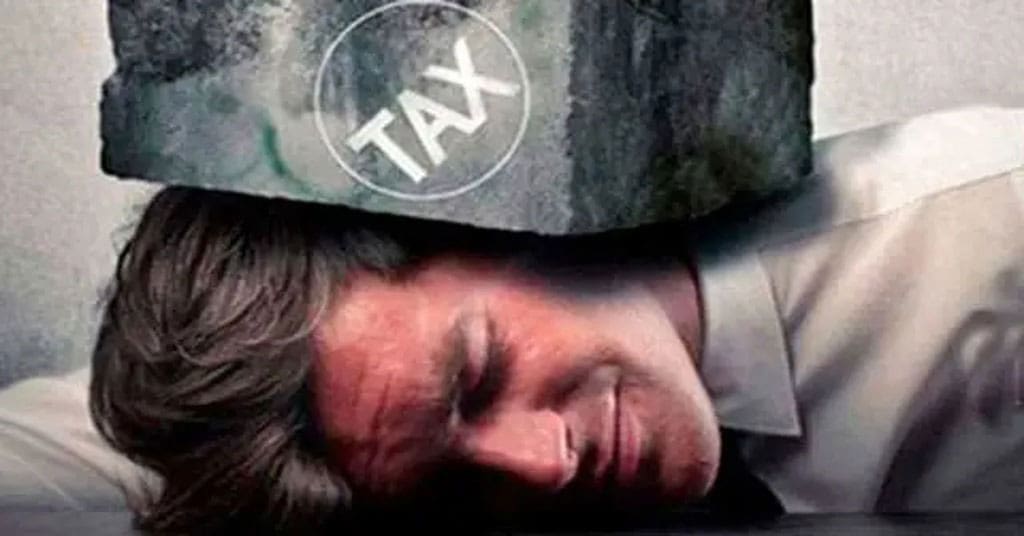Canada’s economy is stagnating. Cutting taxes and shrinking government isn’t risky. It’s necessary for prosperity
You know how Hollywood actors sometimes say, “one for me, one for them”—one passion project, one blockbuster? That’s kind of what being a taxpayer in Canada feels like. One dollar for me, one for them. Only in our case, “them” is the government, and the blockbuster always flops.
Between inflation, a trade war and economic stagnation, Canadians are stretched thin. But finally, like a crack in the wall that lets in the light, we’re hearing commitments from all parties about tax relief.
Nearly every major federal party is pledging income tax reductions. The Liberals want to reduce the lowest tax bracket from 15 to 14 per cent, saving the average Canadian about $400. The Conservatives would go further, cutting it to 12.75 per cent, for a $900 saving. Even the NDP and Green Party are offering tax cut proposals—a consensus that’s rare in any Canadian election.
Yet as this rare agreement emerges, so does the pushback. Commentators are warning about the “cost” of these promises, as though the money in your paycheque belongs to Ottawa by default.
Let’s be clear: a tax cut is not a cost. It’s not a gift. It’s simply the government taking less of what didn’t belong to it in the first place.
The real cost is the one Canadians already pay: stagnant incomes, fleeing investment and a declining standard of living under policies that have pushed us out of the ranks of competitive economies. The Tax Foundation, a respected U.S.-based policy group, recently dropped Canada to 17th in its international tax competitiveness index, citing the government’s now-scrapped plan to raise the capital gains inclusion rate.
Even though that tax hike was abandoned, it reflected a broader economic approach that defined the Trudeau government’s time in power—what’s now often called Canada’s “lost decade.” Since 2015, we’ve seen a steady pattern of higher taxes, expanding bureaucracy and lacklustre growth.
Between 2014 and 2023, Canada’s real GDP per person grew by just 0.4 per cent annually, well behind other advanced economies. Inflation-adjusted employment income rose just 5.2 per cent, compared to nearly 10 per cent in the U.S. Per capita GDP—a key measure of productivity—still hasn’t recovered from the pandemic, and according to the OECD, Canada is projected to have the worst economic growth among developed countries through 2060.
Meanwhile, Ottawa’s footprint keeps growing. Federal debt is approaching $1.4 trillion, with tens of billions spent yearly just on interest. Over 110,000 new federal bureaucrats have been hired in recent years, yet services haven’t improved—only the cost to taxpayers.
A 2022 study found that 86 per cent of middle-class families now pay more in federal taxes than they did in 2015. In 2023, the average Canadian family paid more in taxes than they did on food, housing and clothing combined. And the public is noticing: a recent Montreal Economy Institute-Ipsos poll found that 72 per cent of Canadians feel overtaxed—up five points from the year before. Nearly two in three are unhappy with how Ottawa spends their money, and 77 per cent think their taxes are too high for what they get in return.
And they’re right. When you tax productivity, you get less of it. When you punish investment, it goes elsewhere. And when the public sector grows faster than the private sector, already mired in a productivity crisis, you get stagnation.
All of this paints a picture of a country where the cost of government keeps climbing, while the return on that investment keeps shrinking.
This isn’t sustainable. And Canadians know it.
Whoever wins this election will likely implement tax cuts. But they must be paired with spending restraint and serious efforts to shrink government. Don’t be misled by talk of tax cuts as a burden on the treasury.
Let’s stop pretending that tax cuts are a favour from Ottawa or that the government has dibs on your paycheque. It doesn’t. It’s your money. And it’s time Ottawa remembered that.
Samantha Dagres is the communications manager at the Montreal Economic Institute, a think-tank with offices in Montreal, Ottawa and Calgary.
Explore more on Canadian economy, Federal debt and deficit, Federal taxes, Federal election
The views, opinions, and positions expressed by our columnists and contributors are solely their own and do not necessarily reflect those of our publication.
Troy Media empowers Canadian community news outlets by providing independent, insightful analysis and commentary. Our mission is to support local media in helping Canadians stay informed and engaged by delivering reliable content that strengthens community connections and deepens understanding across the country.




